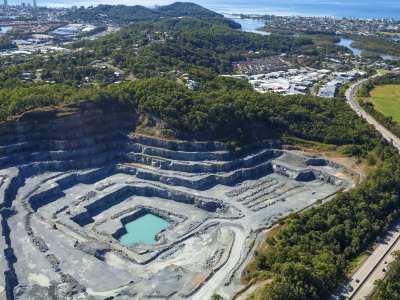Audit Objective
The objective of this audit was to assess whether the Department of Environment and Heritage Protection and the Department of Natural Resources and Mines actioned our recommendations and addressed the data and systems issues that led to the recommendations.
Overview
Queensland's resources industry adds significant economic and social value to the state through royalties, investment, employment, and community development. However, resource activities can cause environmental harm that may be irreversible or take years to rectify.
In Queensland, the Department of Environment and Heritage Protection regulates most resources and waste operators, and manages financial assurance for their activities. Similarly, the Department of Natural Resources and Mines issues permits for mining, petroleum and gas activities, provides geoscientific and resource information, and manages financial assurance for mining activities (excluding petroleum and gas activities).
In Environmental regulation of the resources and waste industries (Report 15: 2013–14) we made nine recommendations, all of which the two departments accepted. In the follow-up audit, we looked at the status of these recommendations and whether the departments' changes addressed the issues we originally raised.
Recommendations from the original 2013–14 report
| 1. |
The Department of Environment and Heritage Protection (DEHP) and the Department of Natural Resources and Mines (DNRM) improve the exchange, coordination and accessibility of information to achieve better planning and risk assessments to inform their compliance activities |
| 2. |
DEHP pursues enforcement action to recover the long-term debt it is owed from annual fees |
| 3. |
DEHP utilises information provided in annual returns to inform its compliance planning and improve its supervision of the industries it regulates |
| 4. |
DEHP implements a program to proactively monitor compliance with environmental authorities with standard conditions and variations to standard conditions |
| 5. |
DEHP captures and recovers the full cost of investigating and prosecuting all non-compliance cases |
| 6. |
DEHP improves its performance measurement and reporting to demonstrate the effectiveness of its activities in achieving environmental outcomes |
| 7. |
DEHP assumes responsibility for administering all financial assurances, including those currently collected and held by the DNRM |
| 8. |
DEHP ensures the financial assurance it calculates and collects reflects the estimated cost of environmental rehabilitation |
| 9. |
DEHP and the DNRM establish clear definitions, guidelines and formal protocols for dealing with the ongoing management of, and where necessary the transfer of responsibility for, ‘care and maintenance’ sites. |



